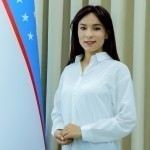Can a common alphabet unite the Turkic Nations?
Interviews
−
17 September 2024 19044 5 minutes
Scientists are working to unite Turkic-speaking nations—who have been forging closer political ties in recent years—through a shared language system. On September 11, 2023, the International Turkic Academy and the Society of Turkic Linguists approved a common alphabet for Turkic states during a meeting in Baku, Azerbaijan. This initiative, which had first been proposed in 1991, finally gained consensus among Turkic scientists after 33 years of discussion and revisions.
Unlike the Uzbek alphabet, the proposed Ortoq alphabet consists of 34 letters: 9 vowels and 25 consonants. Specific adjustments include the removal of three forms of the vowel "U" and the two alternate pronunciations of "A" and "I." The letters "X" and "H" have been retained due to their relevance in other Turkic languages, while the letters "Sh," "Ch," "O'," "G'," and "NG" have been simplified in form. Additionally, the "tutuq belgisi" (a glottal stop marker) has been removed entirely.
So, what benefits might this alphabet bring to Uzbekistan? When and how will it be introduced, and can it truly unite the Turkic world? QALAMPIR.UZ sought answers to these questions from Professor Qazoqboy Yuldoshev, Doctor of Pedagogical Sciences, who represented Uzbek scientists in approving the project.
“After the establishment of the Organization of Turkic States, the presidents discussed bringing our scripts closer together so we could fully understand each other. To achieve this, a commission was formed, including representatives from Uzbekistan, Kazakhstan, Kyrgyzstan, Azerbaijan, and Turkey, tasked with reforming and unifying the alphabet. Uzbek representatives actively participated in this effort, and after years of discussions and meetings in Baku and elsewhere, the project reached a historic milestone on September 11,” Yuldoshev explained.
He emphasized the significance of this achievement, noting that while it may seem minor, it is a monumental historical event. Since 1926, when the Turkic world first discussed adopting the Latin script, efforts to implement a unified Turkic alphabet have remained incomplete.
“This time, the work was finalized by scientists, but it does not mean the alphabet will be adopted immediately,” he added.
Will the Alphabet Be Taught in Schools?
Yuldoshev outlined the long-term plan for implementing the Ortoq alphabet, starting from primary education to academic research and literature. However, he cautioned that transitioning to a unified script is a complex process requiring extensive preparation, particularly in Uzbekistan.
“It is especially difficult for Uzbeks, as we have yet to reach a consensus on our alphabet. Since 1940, we’ve operated under the belief that there are only six vowels in Uzbek, ignoring the nuances of our language. We fail to distinguish between ‘fire’ and ‘wood’ in writing, for example, which reduces the richness of our language. Adopting the Ortoq alphabet will restore these distinctions and preserve the nature of our language,” Yuldoshev explained.
He added that implementing this system would enable all Turkic nations to communicate directly without intermediaries, but acknowledged that some resistance is inevitable.
“So far, we haven’t been able to fix four problematic letters. If we don’t act now, these issues will persist. The transition to the Cyrillic alphabet was achieved in just six months—why can’t we correct these mistakes now? Writing has a profound influence on pronunciation, and correcting our alphabet will help preserve the integrity of our language. If we don’t address this, future generations will face the same problems,” Yuldoshev stressed.
The professor also highlighted historical attempts to separate Uzbek from other Turkic languages.
“Strangely, our letter ‘O’ is pronounced as ‘O’’ across the Turkic world, yet it was deliberately altered in our script. This created another small divide between us and our Turkic brothers. If we are serious about unifying the Turkic world, we must accept the Ortoq alphabet, despite the challenges. From the beginning, we could have adopted the scripts of Turkey or Azerbaijan, but for some reason, our alphabet was made deliberately different. It’s as if someone was actively working to separate Uzbeks from other Turks,” Yuldoshev noted.
In 2023, Russian was officially designated as the common language for countries in the Commonwealth of Independent States (CIS), most of which are Turkic-speaking nations. This development raises questions about the impact of Russian on Turkic linguistic unity.
“Scientists can voice their opinions, though some ideas are controversial. For instance, recently an expert suggested making Russian the state language for all of us. He has the right to share his opinion, but as a Uzbek and a Turk, I have the right to oppose it. Whether such ideas succeed depends on the level of our society. Some dismiss the Turkic alphabet project as too costly, but they fail to see the bigger picture. Turkic unification—whether linguistic, economic, or cultural—will eventually yield far greater benefits than the costs,” Yuldoshev concluded.
Live
All